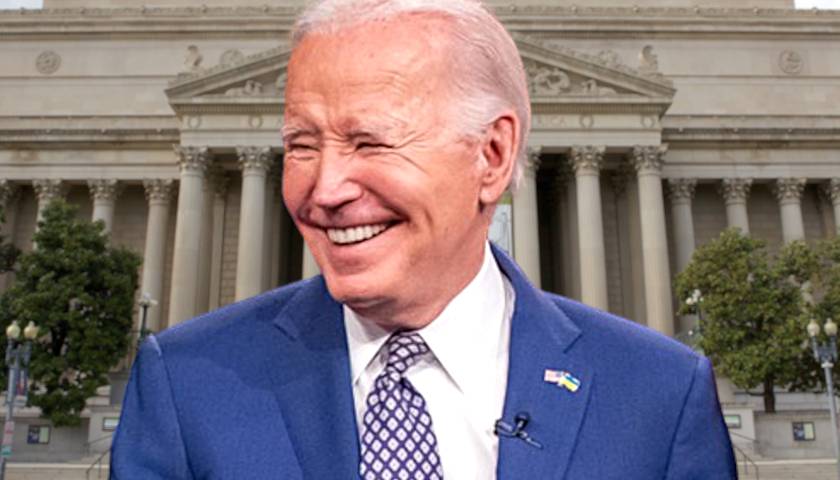by Natalia Mittelstadt
Georgia State Election Board (SEB) member Edward Lindsey is up for reconfirmation before the state House amid new revelations that he has voted on cases involving counties for which he is a lobbyist.
Lindsey, who was appointed to the SEB position on Jan. 7, 2022, is a lobbyist for both Cobb County and DeKalb County, according to the Georgia Government Transparency and Campaign Finance Commission. The two counties are among the top five most populous in Georgia, which has 159 counties.
Lindsey has been registered as a lobbyist for the government of DeKalb County since 2017, and for the government of and board of commissioners for Cobb County since Jan. 27, 2022.
Lindsey is also a registered lobbyist for Dentons, a global law and lobbying firm that has contracted with both Cobb County and DeKalb County. According to Dentons’ website, Lindsey is a partner in the firm’s “Public Policy practice” and “the head of the Firm’s Georgia State Government Affairs team.”
The SEB’s Code of Conduct states that members are to “avoid any appearance of conflict and/or impropriety,” and “expected not to participate in any matter or proceeding before the SEB” when their employer has “provided any personal or professional services to a respondent, complainant, or witness.”
Also, according to Georgia law, state board members are to “[n]ot engage in any business with the government, either directly or indirectly, which is inconsistent with the conscientious performance of his governmental duties.”
The SEB has had multiple complaints regarding both Cobb County and DeKalb County elections during Lindsey’s tenure, which he has been involved in and voted on.
In a complaint regarding DeKalb County, the secretary of state’s office found that there were allegedly multiple violations of state law during the 2020 elections. However, since the county appeared to have made changes in the 2022 elections, Lindsey motioned to send a letter of instruction to the county.
Included in the complaint were violations allegedly committed by former DeKalb County Election Director Erica Hamilton, which Lindsey motioned, and the SEB voted, to refer to the attorney general’s office for not cooperating with the state investigator.
Lindsey’s two-year term is up, meaning that the Georgia House of Representatives has until the legislative session ends on Thursday to decide whether he should be reconfirmed to the SEB.
Georgia House Speaker Jon Burns (R) didn’t respond to a request for comment regarding Lindsey’s reconfirmation.
Lindsey (pictured above) was a Georgia state representative for parts of Fulton County from 2005 to 2014, serving as majority whip for three terms. Lindsey is also a lobbyist for the Anti-Defamation League, a liberal civil rights group, and was a lobbyist for the National Vote at Home Coalition until he was appointed to the SEB.
Last month, Lindsey voted with the 3-2 majority to reject repealing no-excuse absentee voting to the state General Assembly. While he was a state representative, Lindsey had supported no-excuse absentee voting.
Lindsey has also written CNN op-eds discussing his views of the 2020 election. In a May 2022 CNN op-ed, Lindsey wrote that former Sen. David Perdue (R-Ga.) “was left with parroting the former president’s unsubstantiated and debunked election fraud claims.”
Marci McCarthy, chair of the DeKalb County GOP, told Just the News on Thursday that Lindsey has “been a guest on a political podcast” where he said he was “frustrated by SEB complaints” regarding conspiracy theories. “He’s already prejudicially going after this,” she added, saying that as an SEB member, he’s “supposed to be impartial.”
“We’re in a critical time of elections” with the “2024 cycle,” McCarthy said, after having “a rollercoaster ride over the last four years.”
She added that with the additional levels “of questioning, impropriety, and inconsistency,” it’d be better to not have someone on the SEB with these conflicts.
McCarthy also said that she filed a complaint last year with the SEB regarding $2 million in “Zuckerbucks” that DeKalb County received from the U.S. Alliance for Election Excellence, a project of the Center for Tech and Civic Life (CTCL).
CTCL poured nearly $350 million into local elections offices managing the 2020 election, with most of the funds donated to the nonprofit by Facebook founder Mark Zuckerberg. CTCL has claimed its 2020 election grants — colloquially known as “Zuckerbucks” — were allocated without partisan preference to make voting safer amid the pandemic.
DeKalb County received the $2 million after the Georgia state government enacted Senate Bill 202, an election integrity bill which explicitly prohibits private funding of elections, stipulating: “No superintendent shall take or accept any funding, grants, or gifts from any source other than from the governing authority of the county or municipality, the State of Georgia, or the federal government.”
DeKalb County Board of Elections Chair Dele Lowman Smith told local Georgia news outlet Decaturish.com last year that because election offices are prohibited from directly receiving grants, the county’s finance department applied for the grant.
Last May, the Georgia state government enacted Senate Bill 222 to close the loophole in S.B. 202 regarding “Zuckerbucks.”
However, McCarthy alleged in her complaint that “DeKalb County may have accepted a second payment of $1.35 Million” from the U.S. Alliance for Election Excellence in December and renewed its membership with the alliance.
DeKalb County didn’t provide comment by publishing time.
According to emails reviewed by Just the News, she followed up with the SEB regarding her complaint on Monday, asking Lindsey if he was involved in discussing the complaint with the SEB since it involves his client, DeKalb County.
Lindsey responded to McCarthy on Tuesday saying that the complaint is still open and that he is recusing himself from it because the case involves his client, the DeKalb County Board of Commissioners.
On Thursday, Lindsey told Just the News, “Under OCGA 21-2-40, county election boards are creations of the state created independently by local legislation with their own independent boards, rules, and election duties.”
As a result, “there is no conflict of interest in participating in cases involving county election boards as long as there is no interest of the county government controlled by the county commission which my firm represents,” he noted.
Lindsey explained that he has “participated in deciding a few cases involving the county election boards in question. Most, if not all, of the cases have been decided unanimously. This includes multiple cases where the facts required either a sanction of the local election board and/or election officials with letters of reprimand or sending the matter to the Attorney General for further action. In short, I have not hesitated in voting for appropriate sanctions as merited against the county election boards in question and pushing them to correct shortcomings where needed to help Georgia voters.”
He added, “I have in the past recused myself in cases where my firm’s clients are directly involved and I am not participating in two open cases where the county commissions in question are involved.”
– – –
Natalia Mittelstadt graduated from Regent University with Bachelor of Arts degrees in Communication Studies and Government.
Photo “Edward Lindsey” by Edward Lindsey.






